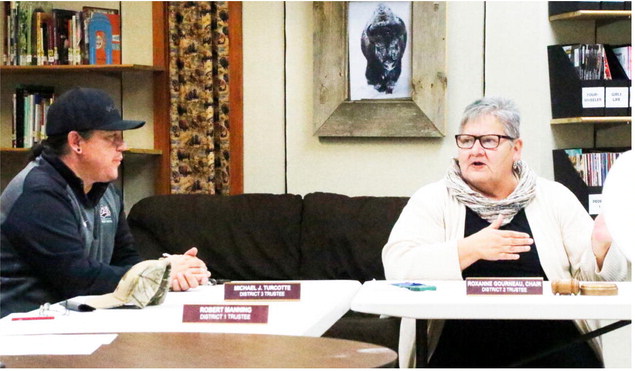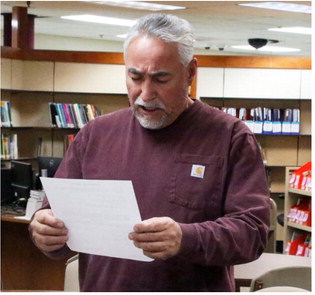Trump Campaign And Republican Groups Sue To Toss Bullock Directive Allowing All-Mail Election
The lawsuit comes a day after Secretary of State Corey Stapleton told lawmakers that 75% of Montana's counties have opted for a mail-in general election in November.
Montana Free Press
Republican groups sued Wednesday to overturn a directive from Gov. Steve Bullock that has led most Montana counties to say they’ll hold all-mail elections this year.
Last month, Bullock said the state would allow counties to individually decide how they will conduct the November general election, citing the ongoing coronavirus pandemic and the risk of spread among crowds at polling places as justification for the directive. The decision followed June’s all-mail primary election. According to the lawsuit filed by President Donald Trump’s campaign, the Montana Republican Party, the Republican National Committee and the National Republican Senatorial Committee, Bullock’s order should be overturned because, the plaintiffs allege, only the Montana Legislature has the authority to allow all-mail balloting for federal elections. The lawsuit was filed in U.S. District Court in Helena.
“In a direct usurpation of the legislature’s authority, Governor Bullock issued a directive purporting to allow universal vote-by-mail balloting for the November 2020 election,” the lawsuit says. “The result is a patchwork election code that has varying deadlines and procedures across Montana’s 56 counties. This brazen power grab was not authorized by state law and violates both the Elections Clause and Electors Clause of the U.S. Constitution.”
Montana Secretary of State Corey Stapleton, a Republican, was also named in the suit as a defendant alongside Bullock.
It’s unclear how the lawsuit or any ruling reversing Bullock’s order might impact counties that have already determined to hold elections by mail.
All Montana counties have made decisions about how they plan to conduct November’s election, Stapleton told the Legislature’s State Administration and Veterans’ Affairs Interim Committee on Tuesday. Of the state’s 56 counties, 14 have decided to hold “as usual” elections, he said, meaning residents will have to either vote in person at a polling place or request an absentee ballot to vote by mail.
“About 25 percent of the counties will be conducting elections as usual, not that there’s anything usual going on with the pandemic,” he told the committee.
Stapleton had not responded to a request for comment on the lawsuit by the time of publication.
In an email, Bullock spokeswoman Erin Loranger said Raph Graybill, Bullock’s chief legal counsel who is currently running for state attorney general as a Democrat, and deputy legal counsel Rylee Sommers-Flanagan will represent the state in the lawsuit. She said the rest of the defense team has yet to be determined.
Bullock, also a Democrat, is running against incumbent U.S. Sen. Steve Daines for his seat in Congress. The lawsuit also alleges Bullock’s directive would benefit the governor in his race against Daines.
“This template lawsuit appears to be part of a pattern of lawsuits across the country by Republican party operatives to limit access to voting during the pandemic. Voting by mail in Montana is safe, secure, and was requested by a bipartisan coalition of Montana election officials seeking to reduce the risk of COVID-19 and keep Montanans safe and healthy,” Bullock said in a statement. “This is the same directive that the Republican President of the Senate and Republican Speaker of the House said was the right thing to do for the June primary. Today, we have many more active cases of COVID-19 than we did back in June.”
During the June primary, Montana registered the largest turnout for a Montana primary in nearly 50 years, with 54.9 percent of registered voters returning ballots, compared to 45.3 percent in 2016.
The lawsuit alleges that a “patchwork” of different voting procedures throughout the state would lead to confusion, and that widespread mail-in voting could lead to voter fraud via ballots being sent to people who have moved, died, or don’t want a ballot.
But in a July 24 letter from the Montana Association of Counties and the Montana Association of Clerk & Recorders/ Election Administrators to Bullock encouraging him to allow counties the option to again hold an all-mail election, election administrators described the June all-mail primary as a success. The letter said the Montana primary had been especially successful compared to states that maintained in-person primary polling.
“[W]e watched as other states who opted to conduct their Primary Elections via the polls suffer[ed] with not enough judges, in person- crowding, voter confusion, delayed results, and worst of all, we saw spread of the coronavirus linked to the elections,” the letter read. “Montana, on the other hand, provided clear instructions to voters, realized higher turnout than usual, and enjoyed timely results reporting.”
The associations’ letter also responded to concerns expressed by some Republicans — concerns echoed in the lawsuit — that vote-bymail elections increase the potential for election fraud, saying signatures on mail ballot envelopes are checked against signatures kept on file for each voter.
“Mail ballot elections have security features that polling place elections do not, and anti-fraud protections are written into Montana law,” the associations wrote.
Elections officials in the 42 Montana counties that have decided to hold mail-in elections will mail ballots to voters Oct. 9. Requested absentee ballots will be mailed Oct. 2. Counties that have decided to hold a mail-in election must also provide a physical location for in-person voting.
During Tuesday’s committee meeting, Stapleton said counties can still change their decisions even after the Friday, Sept. 4, deadline to finalize plans, adding that his office will be posting all counties’ election plans online.

